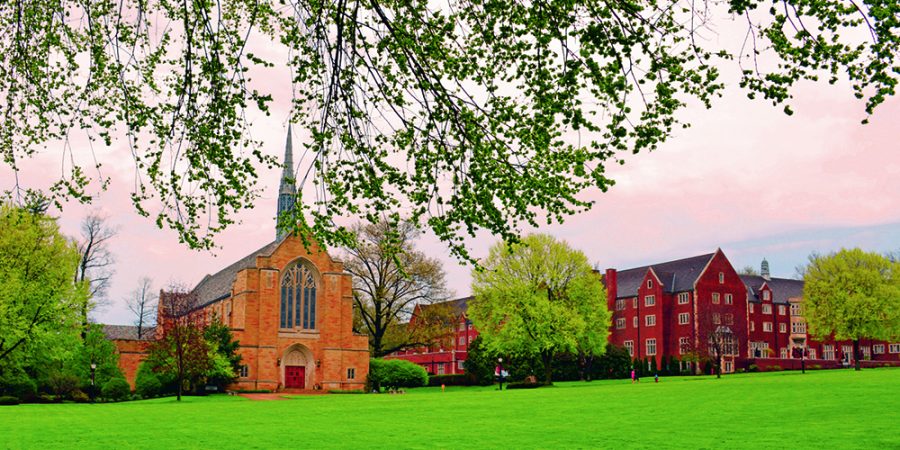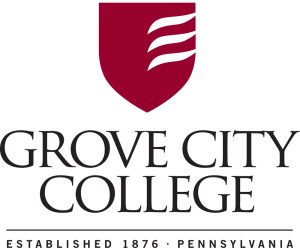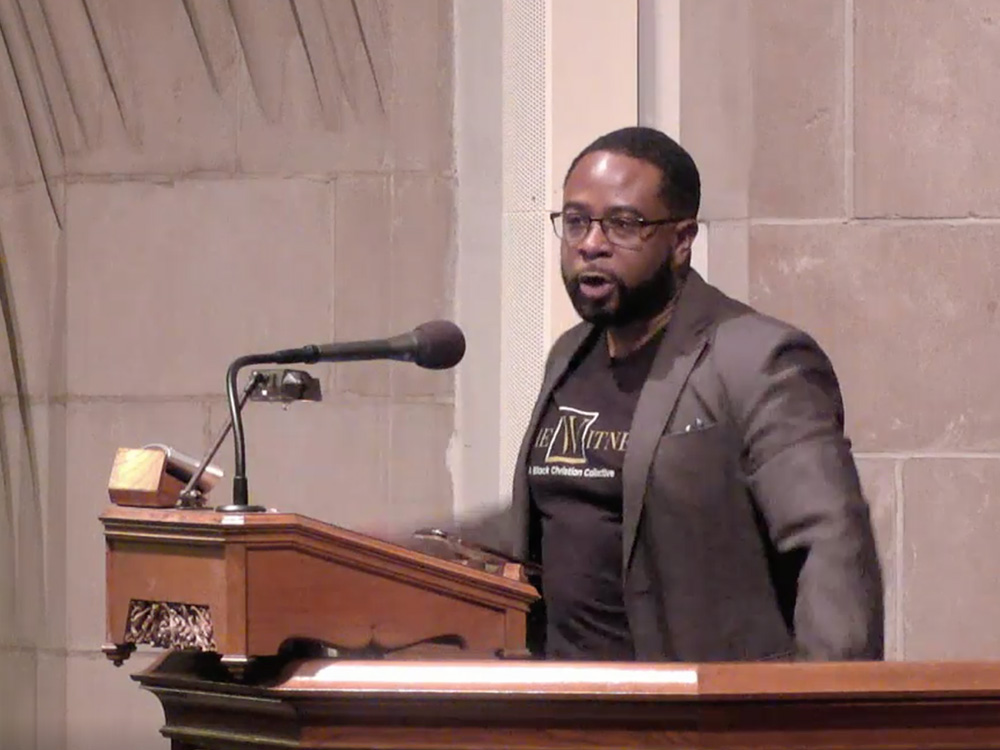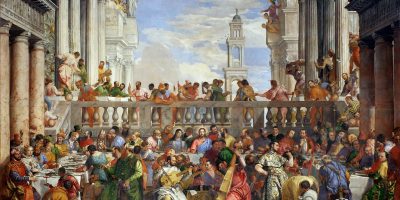Tisby told RNS the allegations that his sermon promoted CRT are “ludicrous.”
Grove City College rejects ‘wokeness,’ CRT in new report

“Grove City College has not changed,” a committee composed largely of Grove City board members said in the report released last week. “It remains a Christ-centered, conservative institution.”
The report, a product of the committee’s assignment to ascertain any “mission drift” at the college, recommends re-adding the word “conservative” to the school’s mission statement after it was removed in 2021 and lists “remedial actions” to curb the promotion of critical race theory at the school. These actions include replacing an education course accused of promoting “pop-CRT,” rebranding the school’s Office of Multicultural Education and Initiatives and exercising increased scrutiny of guest speakers and student trainings.
Tisby, The New York Times bestselling author of “The Color of Compromise” and “How to Fight Racism,” told Religion News Service the report uses CRT as “a junk drawer for anything about race or justice that makes a certain type of person feel uncomfortable.” Because of the rhetoric around CRT, he said, “much needed conversations about racial justice are being muted in the environments where they are needed most, such as Christian colleges and universities.”
Others found the report encouraging. Megan Basham, an author at conservative news outlet The Daily Wire, tweeted that it offered a “straight-forward, honest assessment,” and said she appreciated its clarifying description of how CRT is incompatible with the school’s mission. “Well worth reading the entire report. Bravo!”
Matt Kennedy, rector at an Anglican church in Binghamton, New York, and his wife Anne Carlson Kennedy praised the report on their podcast.
“The best part of it is the description of critical race theory upfront, which is just one of the best short summaries of the problems of critical race theory I’ve ever read,” said Matt Kennedy.
The report says critical race theory is incompatible with the school’s vision, mission and values because it evaluates people based on their race and antiracist works, can’t be separated from political activism, “uncharitably detects aggression where none is intended” and sometimes “demeans rational argument as itself racist and oppressive.”
The school, which has just 2,400 full-time students, was first accused of promoting critical race theory, an academic framework that sees racism as embedded in institutions and policies, in a November petition authored by Grove City parents and alumni. The petition alleged that this “destructive and profoundly unbiblical worldview” was asserted at the college in a fall 2020 chapel presentation by Tisby.
The petition also called into question the chapel screening of a pre-recorded TED talk by Bryan Stevenson, an Equal Justice Initiative founder and criminal justice reform advocate; as well as a Resident Assistant training that invoked the concepts of white privilege and white guilt. Additionally, the petition decried several books used in an education studies class and in focus groups, including Ibram X. Kendi’s “How To Be an Antiracist” and Wheaton professor Esau McCaulley’s “Reading While Black.”
That initial petition triggered a flood of follow-up petitions, articles and open letters debating whether the school had forsaken its traditional values. In February, the college’s board of trustees categorically rejected critical race theory and introduced a committee to investigate the allegations of mission-drift. Grove City College did not respond to multiple requests for comment.

The report notes that Tisby’s October 2020 chapel presentation is the chapel service that has “drawn the most attention from critics.” According to the report, most Grove City leaders interviewed said inviting Tisby to speak in chapel was a “mistake” due to what they described as his evolution.
“Most of those in GCC leadership with whom we spoke observed that ‘the Jemar Tisby that we thought we invited in 2019 is not the Jemar Tisby that we heard in 2020 or that we now read about,’” the report stated, citing Tisby’s short stint as assistant director of narrative and advocacy at Ibram X. Kendi’s Center for Antiracist Research and the “progressive policies” he advocates in his latest book as evidence of his transformation.
Tisby told RNS that his convictions did not change between 2019 and 2020 — what changed was the socio-political climate.

The chapel in question, called “The Urgency of Now,” was a 21-minute sermon that drew parallels between the biblical story of Esther and the modern-day movement for racial justice. Tisby quoted Martin Luther King Jr.’s “I Have a Dream” speech and letter from Birmingham Jail and called on those in attendance to engage in racial justice work.
“Many of you, unfortunately, are in the target demographic whom King called the ‘white moderate,'” Tisby said in the chapel. Tisby asked the listeners to “fill your minds with an awareness of racial justice so that five, 10, 20 years from now, you don’t have to say ‘I never knew.'”
Tisby told RNS the allegations that his sermon promoted CRT are “ludicrous.” While the November petition charged Tisby with being an “outspoken apologist for CRT,” Tisby said he has never been trained in critical race theory.
“What most people, including compilers of this report, are calling critical race theory is not critical race theory,” he said. “My work is influenced by the study of history. It doesn’t take a specific training in critical race theory to understand that racism is not simply a matter of personal prejudice but a matter of policy.”
The report also found that an educational course called “Cultural Diversity and Advocacy” “effectively promoted pop-CRT” because it offered readings such as Kendi’s “How To Be an Antiracist,” Robin DiAngelo’s “White Fragility” and Ta-Nehisi Coates’ “Between the World and Me” without “a critical or opposing perspective.” It found that the director of Multicultural Education and Initiatives promoted “‘woke’ concepts” in a book club and parroted “CRT concepts” in a training for Resident Assistants that criticized the “concept of race neutrality.”
Warren Throckmorton, a professor of psychology at Grove City, said he doesn’t have a lot of confidence in the report’s findings because it offers a faulty definition of CRT. According to Throckmorton, the report says CRT embraces biological distinctions — however, he said, CRT rejects biological distinctions because it sees race as socially constructed. He also pointed to a footnote that says: “Our references to CRT include popular ‘CRT-adjacent’ advocacy cloaked in the secular or religious language of social justice.’”
“That could be anything, couldn’t it?” asked Throckmorton. “So when they say they found CRT, what did they really find?”
While the report promises not to ban books, Throckmorton said that promise has done little to reassure professors who are questioning if and how to teach on topics like health disparities or social justice in the classroom. Natalie Kahler, a Grove City alumna (’94) who authored a March 8 petition asking the school not to inhibit discussions about racism on campus, told RNS she’s worried the report’s findings could lead to “indoctrinating and not educating,” especially given the fact that Grove City professors don’t receive tenure and are given one-year contracts.
“If you create an environment where people are constantly afraid for their job, and are afraid something they might say could be interpreted as CRT because everybody is interpreting CRT in very different ways, they’re creating a culture where people aren’t going to be able to have hard conversations,” said Khaler.
RELATED: Grove City College caught in crossfire of evangelical CRT battles
In March, Jon Fea, professor of American history at Messiah College in Mechanicsburg, Pennsylvania, wrote an article showing Grove City’s board chair, Edward D. Breen, has advocated for diversity, equity and inclusion as CEO of the chemicals company DuPont. “(I)s the Edward Breen who led the Grove City College Board’s condemnation of critical race theory the same guy working for racial justice at DuPont?” Fea asks.
Another board member, David Forney, is pastor of a Charlottesville church and has offered a list of racial justice resources to his congregation on the church website, including TED Talks by Bryan Stevenson and the books “How To Be an Antiracist” and “Between the World and Me,” both of which the report characterized as promoting “pop-CRT.”
“I am puzzled that these resources are considered fine and helpful for a board member to recommend to his congregation but are considered off-mission for our faculty to assign as study resources for a college course,” Throckmorton said in an email to RNS. Neither Breen nor Forney could be reached for comment.
Tisby said that the CRT debate at Grove City points to a broader “sorting” in Christian higher education between schools working to be more racially and ethnically inclusive and those doubling down on appealing to “a very small but loyal constituency that does not want to meaningfully engage with vital conversations around racism.”
On his podcast, Kennedy suggested that Grove City is exemplifying how other Christian organizations ought to approach CRT. “Congregations, denominations, need to start seeing wokeness as a heresy,” said Kennedy. He added that “the language employed by especially Christian ‘wokesters’ is very, very gospel-like. And so the unwary can be pulled-in and you have compassion on them. But the leaders of this thing, those people need to be driven out of the church.”
Tisby said Grove City’s response to CRT should be taken as a warning.
“(A)nyone, regardless of race or ethnicity, who speaks up for racial justice could be a victim of these kinds of attacks,” Tisby said. “And, I would say, these actions are all the more lamentable because they come out of Christian institutions. We follow a savior who said, ‘you shall know the truth and the truth will set you free.’ But we have people who profess to be followers of Christ, who seem to be running from the truth about racism.”
RELATED: Will my book be banned?
This story has been updated to correct the spelling of Natalie Kahler’s last name.
Read more news at XPian News… https://xpian.news




Comments are Closed